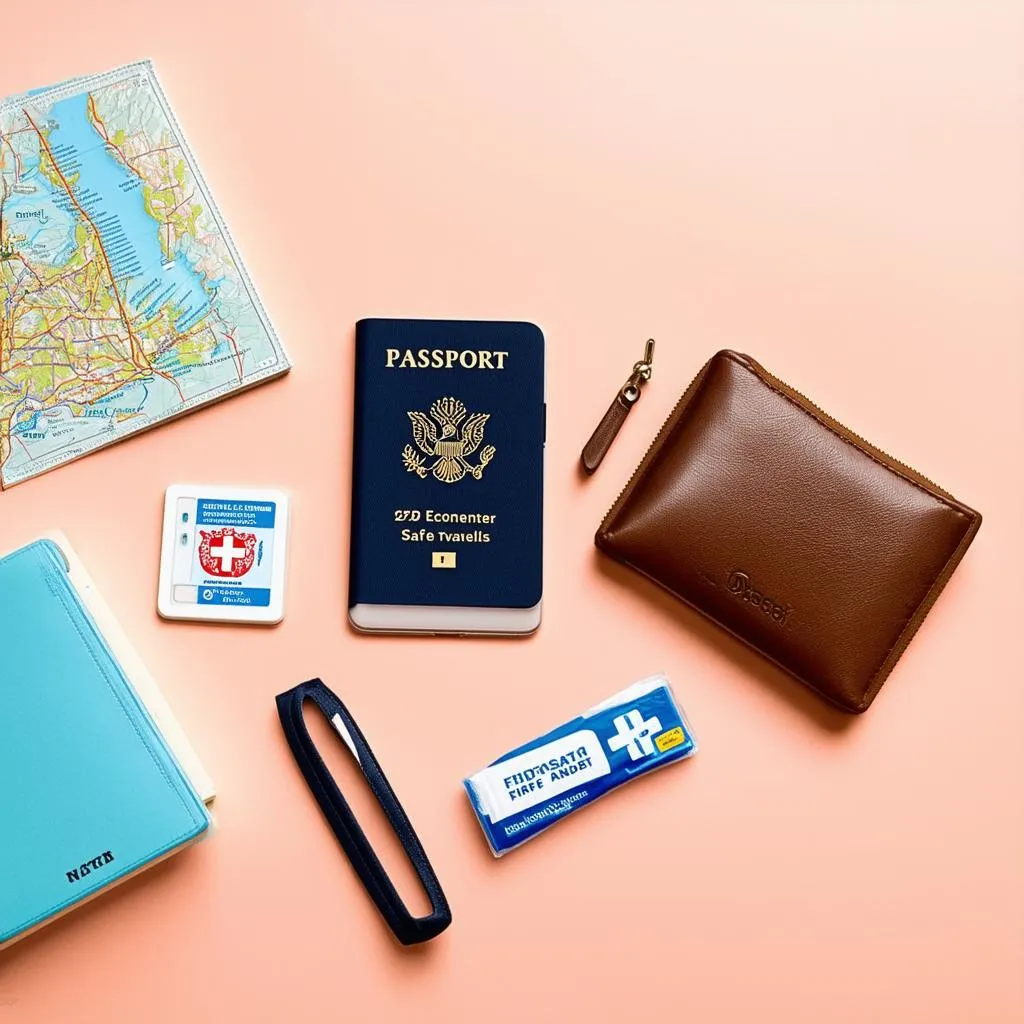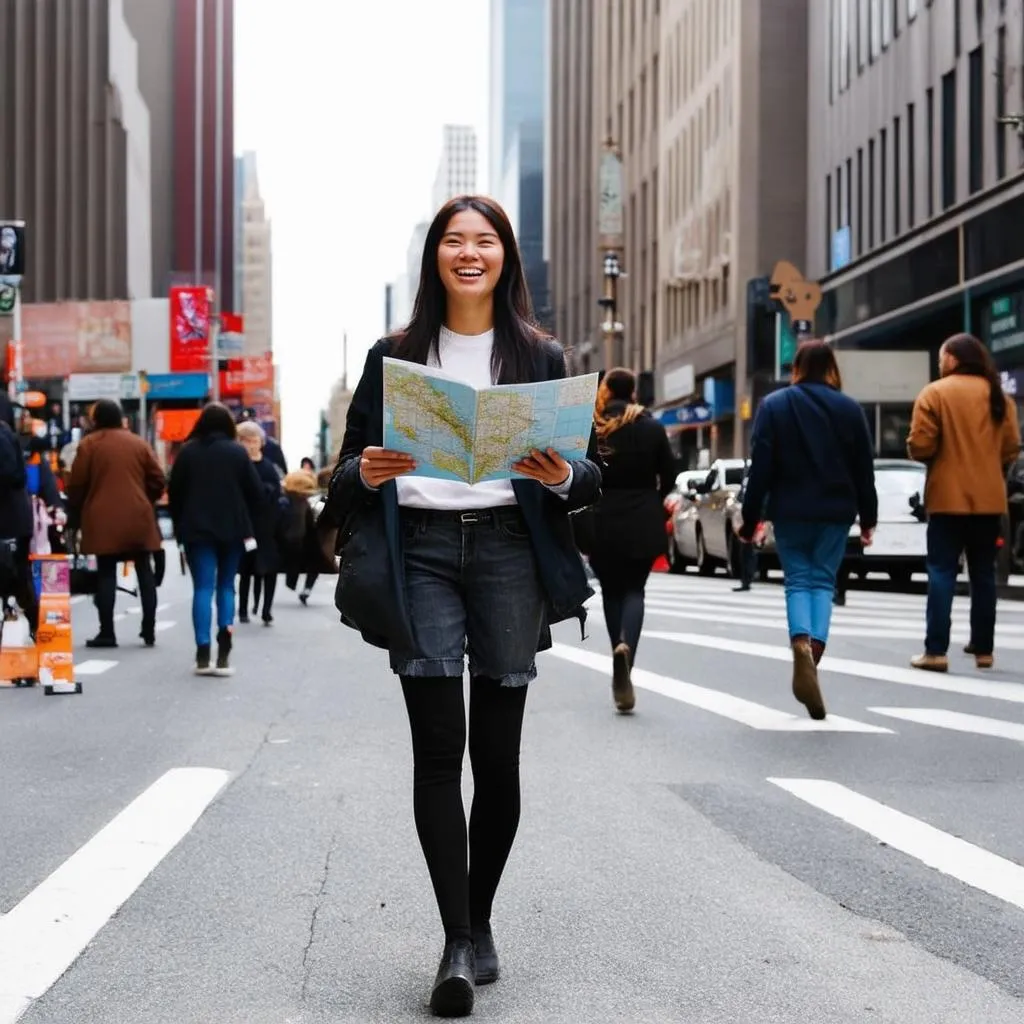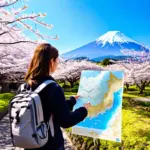Picture this: you’re strolling down the vibrant streets of Bangkok, the aroma of street food filling the air, or perhaps you’re hiking through the breathtaking landscapes of Patagonia, the silence broken only by your own footsteps. Traveling offers unparalleled experiences, but it’s crucial to prioritize your safety throughout your adventures.
Don’t let safety concerns hold you back from exploring the world. With the right knowledge and preparation, you can embrace the unknown with confidence. In this comprehensive guide, we’ll delve into proven strategies and insider tips to help you stay safe while traveling, ensuring a worry-free and unforgettable journey.
Pre-Trip Safety Checklist: Planning for a Secure Journey
“A well-planned trip is half the journey,” or so says seasoned traveler and author, Emily Carter in her book “The Art of Safe Travels.” Just as you wouldn’t embark on a road trip without checking your car, a safe trip starts with meticulous planning.
Research Your Destination: Knowledge is Power
Before you even pack your bags, delve deep into your chosen destination.
- Understand the local laws and customs: Familiarize yourself with local laws, dress codes, and social etiquette to avoid unintentional offenses. For instance, knowing that chewing gum is illegal in Singapore or that public displays of affection are frowned upon in some cultures can save you from unnecessary trouble.
- Check travel advisories: Government websites like the US Department of State or the UK Foreign Office provide valuable travel advisories, highlighting any safety concerns, visa requirements, or health precautions for your destination.
- Stay informed about current events: Keep abreast of any recent developments or political situations in your chosen locale.
Secure Your Finances and Documents: Safeguard Your Essentials
- Inform your bank and credit card companies: Notify your financial institutions about your travel dates and destinations to prevent your cards from being blocked for suspicious activity.
- Make copies of important documents: Photocopy your passport, visa, driver’s license, and travel insurance information. Store these copies separately from the originals, both physically and digitally, in case of loss or theft. Consider keeping a copy in your carry-on luggage and another set with a trusted contact back home.
Pack Smart and Safe: Essentials for a Secure Journey
- Pack light: Avoid carrying excessive luggage that might slow you down or make you a target for theft. Remember, it’s easier to navigate crowded streets and public transportation with a manageable load.
- Consider a money belt or hidden pouch: These discreet accessories, worn under your clothing, provide a secure way to carry your cash, cards, and passport, deterring pickpockets.
- Invest in TSA-approved locks: Secure your luggage with sturdy locks, ensuring your belongings are safe during transit.
On-the-Ground Safety Tips: Navigating Your Destination with Confidence
You’ve arrived! The excitement is palpable, but staying safe amidst the unfamiliar surroundings is paramount.
Transportation Safety: Smart Choices for a Smooth Ride
- Opt for reputable transportation services: Choose licensed taxis, ride-sharing apps, or reliable public transportation options. Avoid hailing rides from the street, especially at night.
- Plan your routes in advance: Map out your destinations and familiarize yourself with the routes beforehand, especially at night. Share your itinerary with a trusted contact back home.
Accommodation Safety: Making Your Home Away from Home Secure
- Choose well-lit and populated areas: Select accommodations in safe and well-lit neighborhoods. Avoid isolated areas, especially at night.
- Double-check locks and security: Upon arriving at your hotel or rental, ensure all doors and windows are secure. Familiarize yourself with the emergency exits and fire safety procedures.
Personal Safety: Protecting Yourself and Your Belongings
- Be aware of your surroundings: Stay vigilant, especially in crowded areas or tourist hotspots, which are prime targets for pickpockets. Avoid displaying expensive jewelry or electronics that might attract unwanted attention.
- Trust your instincts: If a situation or location feels unsafe, remove yourself immediately. Your gut feeling is often your best guide.
- Learn basic self-defense techniques: Consider learning a few basic self-defense moves to empower yourself in case of a potential threat.
Embracing Local Culture Safely: Respectful and Secure Interactions
Immersing yourself in the local culture is the heart of travel, but it’s vital to do so respectfully and safely.
- Dress appropriately: Respect local customs and traditions by dressing modestly, especially when visiting religious sites or conservative areas.
- Learn a few basic phrases: Knowing a handful of local greetings or phrases can go a long way in fostering positive interactions and demonstrating respect for the local culture.
Staying Healthy and Connected: Prioritizing Your Well-being
- Pack a basic first-aid kit: Be prepared for minor health issues by carrying essentials like bandages, antiseptic wipes, pain relievers, and any necessary prescription medications.
- Stay connected: Ensure your phone is charged and consider an international data plan or local SIM card to stay connected. Download offline maps and translation apps to navigate unfamiliar territory with ease.
What to Do in Case of an Emergency: Staying Calm and Seeking Help
- Know the local emergency numbers: Familiarize yourself with the local emergency contact numbers for the police, ambulance, and fire department.
- Contact your embassy or consulate: In case of a serious incident like lost or stolen documents, contact your embassy or consulate for assistance.
 Safe Travel Essentials
Safe Travel Essentials
FAQs About Staying Safe While Traveling
Traveling often comes with a unique set of questions. Let’s address some common concerns:
Q: Is it safe to use public Wi-Fi while traveling?
A: Public Wi-Fi can be risky. Avoid accessing sensitive information like online banking or making online purchases on unsecured networks. Consider using a VPN (Virtual Private Network) for an added layer of security.
Q: What should I do if I get lost in a foreign country?
A: Stay calm and avoid wandering aimlessly. Look for landmarks, consult your offline map, or ask locals for directions to a familiar location. If you feel unsafe, seek assistance from a police officer or enter a public establishment.
Q: How can I protect myself from scams while traveling?
A: Be wary of overly friendly strangers offering unsolicited help or deals that seem too good to be true. Research common scams in your destination beforehand and trust your instincts. If something feels off, it probably is.
 Exploring a New City Safely
Exploring a New City Safely
Travel with Confidence: Your Safe and Unforgettable Adventure Awaits
Remember, staying safe while traveling is an ongoing process of awareness, preparation, and following your instincts. By implementing these practical tips and embracing a mindset of preparedness, you can navigate the world with confidence, creating memories that will last a lifetime.
At TRAVELCAR.edu.vn, we’re dedicated to providing you with the information and resources you need to embark on safe and enriching journeys. Explore our website for more travel tips, destination guides, and inspiration for your next adventure. Safe travels!

